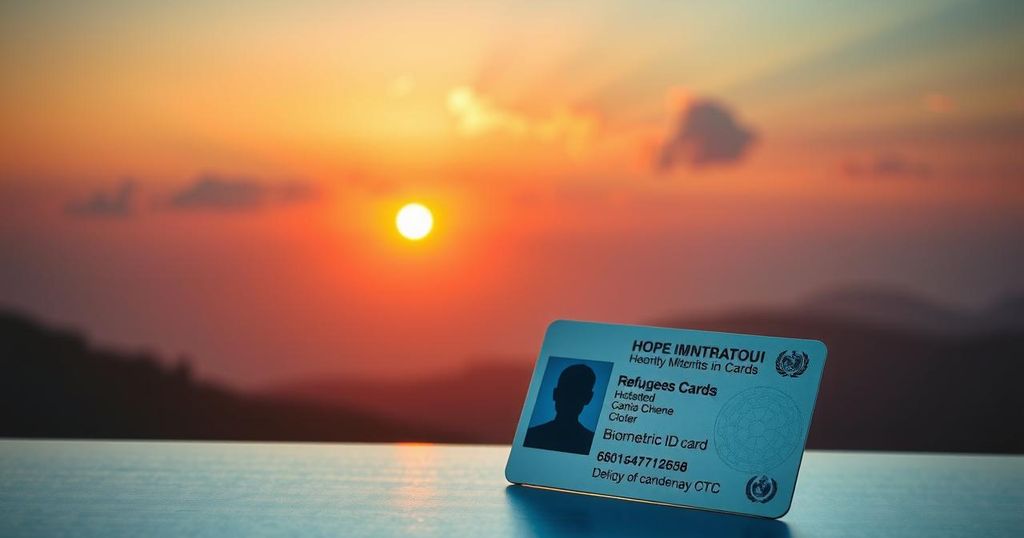The biometric identity card initiative in Cameroon is transforming the lives of refugees by providing them with essential identification that facilitates movement, access to services, and economic participation. This collaborative effort between the Government of Cameroon and UNHCR reflects a significant advancement in the support and protection of refugees, fostering their inclusion in society.
Biometric identity cards have become a beacon of hope for refugees in Cameroon, especially for individuals like Ali Bappaladane, the president of a refugee association in the Far North region. He eagerly joins other refugees in Touboro to collect their government-issued cards, which have been printed as part of a larger initiative by the Government of Cameroon and UNHCR, designed to ensure refugees can move freely and have access to services.
The distribution of biometric ID cards is taking place in Touboro and Yaoundé, aiming to enhance the inclusion of urban refugees who face challenges similar to those in rural areas. For Hadidja, a Chadian refugee in Yaoundé, the ID card will facilitate access to educational resources and banking services, thus promoting her aspiration to pursue higher education at the University of Yaoundé 1.
The introduction of these biometric cards marks a significant development for many refugees. As Shelley Teckombi Yazembrou, a refugee from the Central African Republic, states, having the card allows her to navigate life in Cameroon with reduced fear and open doors to financial opportunities that were once out of reach.
UNHCR’s Bettina Gambert emphasizes that the initiative, which has required diligent collaboration between the government and international bodies, reflects a vital step toward achieving Sustainable Development Goals. The cards empower refugees and underscore their essential rights, enabling greater participation in society.
For recipients like Ali and Hadidja, these biometric cards symbolize much more than identification; they represent newfound opportunities, inclusion, and the potential for a brighter future. This progress illustrates the positive impact of collective efforts between governments and organizations in supporting refugees.
In recent years, Cameroon has experienced a significant influx of refugees due to regional instability. The Government of Cameroon, alongside the United Nations High Commissioner for Refugees (UNHCR), has enacted measures to provide these displaced individuals with protection and support, including the issuance of biometric identity cards. These cards aim to facilitate freedom of movement, access to essential services, and economic participation, significantly affecting the lives of refugees.
The rollout of biometric ID cards for refugees in Cameroon signifies not only an advancement in identification for displaced persons but also a vital step toward their integration and empowerment within the host community. By fostering collaboration between the Government of Cameroon and UNHCR, this initiative enhances refugees’ access to essential services, promoting social and economic inclusion while instilling hope for a better future.
Original Source: www.unhcr.org







